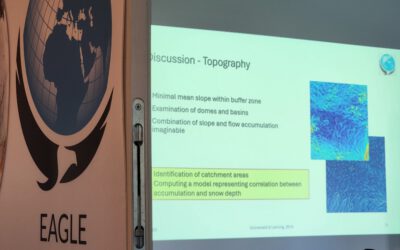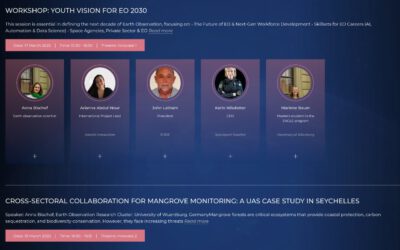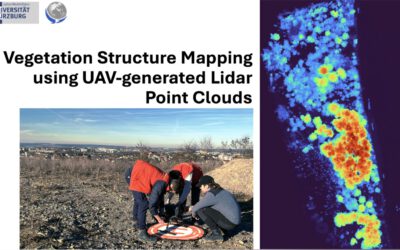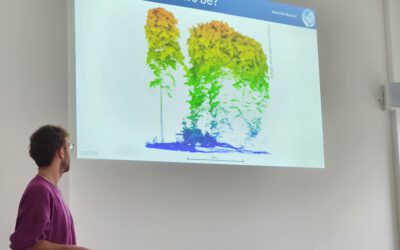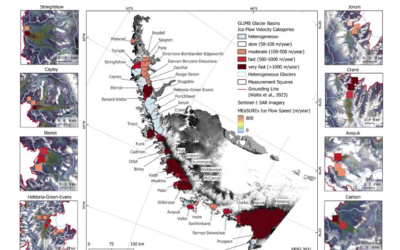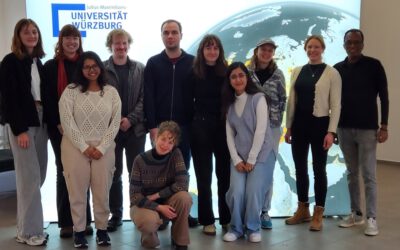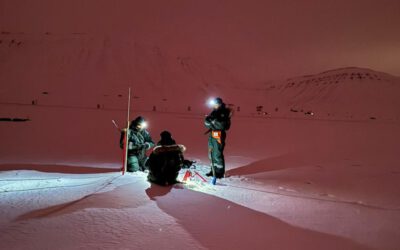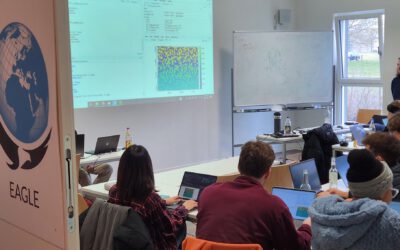Aim
In this lecture you will gain a broad overview of the applications of remote sensing. Examples from different disciplines and applied Earth Observation projects will provide your with a comprehensive understanding of if, where and how remote sensing can contribute to qualitative and quantitative assessments of the cryosphere, forest ecosystems, agro-ecosystems, the coastal zone and urban ecosystems; amongst others. We will evaluate the potential of passive and active sensor systems and adress the advantages and shortcomings of existing sensors in the optical / mutlsispectral, thermal and microwave domain.
Content
This lecture provides knowledge on applications of Earth Observation with a focus on remote sensing of the land surface. Which research questions of different disciplines can be answered by the means of Earth Observation? What are the main approaches? The module links up remote sensing measurements to geo- and biophysical parameters required for further geoanalysis. Commonly used methodological approaches for the derivation of the different parameters are presented. Examples include amongst others applications in geography, environmental planning, ecology, biology, oceanology, soil science, geology, atmospheric science, but also e.g. pollution control (monitoring) and natural resource management. In addition, the module outlines selected examples, how remote sensing technology can be transferred to the workplace of professionals also beyond science, e.g. via the use of geoinformation systems.
General Course News and Updates
EAGLE MSc Students Present UAS-Based Snow Research at Zugspitze
EAGLE MSc students recently showcased their research findings on snow depth and its driving factors at the Schneefernerhaus Environmental Research Station on Zugspitze, Germany’s highest peak. Their work, conducted under the supervision of PhD students Elio Rauth and...
EAGLE Students Marlene Bauer and Anna Bischof to Participate in ISRSE 2025
We are very pleased to share that two of our students, Marlene Bauer and Anna Bischof, will be actively contributing to the International Symposium on Remote Sensing of Environment (ISRSE) 2025 in the UK next week. As part of their involvement with talks and posters,...
course on Theory and Practice of UAS Operation and Methods
Last week our staff members Antonio Gomez Castaneda and Luisa Pflumm did an UAS course within out EAGLE M.Sc. program. The primary objective of this course is to prepare students — from having no prior experience — to safely operate drones for scientific applications....
Mastering Scientific Presentations: How EAGLE MSc Students Elevate Their Soft Skills
In the world of science, research is only as powerful as its communication. At the EAGLE MSc program, we recognize that technical expertise alone isn’t enough—soft skills like scientific writing, visual storytelling, and presentation skills are just as crucial. That’s...
EAGLE Master Defense “High Performance Computing for Earth Observation Time Series Analysis: A Case Study on Glacier Dynamics on the Antarctic Peninsula”
On February 28, 2025, Sarah Leibrock will present her internship on "High Performance Computing for Earth Observation Time Series Analysis: A Case Study on Glacier Dynamics on the Antarctic Peninsula" at 11:00 in seminar room 3, John-Skilton-Str. 4a.High Performance...
EAGLE course by Dr. Celia Baumhoer on Polar and Glacier Earth Observation
Our EAGLE students had this week the opportunity to attend an intensive course led by Dr. Celia Baumhoer, an expert in Earth observation of polar and glacier ecosystems. The course, which covered both the Antarctic and Arctic regions, as well as glaciers in the Alps,...
EAGLE Students Explore LiDAR Data with QGIS, Whitebox, and CloudCompare
At EAGLE, our students continuously expand their expertise in Earth observation by learning various data processing techniques. Today, they are diving into LiDAR data analysis, using QGIS, Whitebox, and CloudCompare to enhance their skills in handling different remote...
Exploring Whitebox Tools: EAGLE Students Dive into Geomorphology and Hydrology Applications in QGIS
In the world of Earth observation and geospatial analysis, staying ahead of the curve requires familiarity with the diverse environments and various powerful scientific software tools. At EAGLE, our students have the opportunity to also explore the vast potential of...
Exploring the Arctic: Eagle MSC Students Lena and Ronja Conducting UAS Research
The Arctic is one of the most extreme and fascinating environments on Earth, offering an unparalleled opportunity for scientific research. For Eagle MSC students Lena and Ronja, this unique landscape is not just a place of study—it's also an unforgettable adventure....
Integrating R and Whitebox Tools for Geospatial Analysis
Within the EAGLE M.Sc. program our Earth Observation students have managed to understand some important research approaches within just the first term of their studies. Integrating and working with several environments simultaneously is a critical tasks for their...

